Table of Contents
ToggleIn a world buzzing with distractions, diving into a good book can feel like an extreme sport. But what if tackling that towering pile of unread novels could turn into an exhilarating adventure? Enter reading challenges—the perfect excuse to unleash your inner bookworm and shake off those pesky reading slumps.
Imagine transforming your reading list into a thrilling quest, where every page turned is a small victory. Whether it’s conquering a genre you’ve never tried or racing against the clock to finish that epic saga, reading challenges make literature fun again. So grab your favorite mug of coffee, dust off that bookshelf, and get ready to embark on a literary journey that’s as rewarding as it is entertaining. Who knew reading could be this much fun?
Understanding Reading Challenges
Reading challenges enhance the enjoyment of literature in an increasingly distracting world. These challenges motivate individuals to explore diverse genres while accomplishing personal reading goals.
Types of Reading Challenges
Various types of reading challenges exist to engage readers. Monthly challenges encourage individuals to read a specific number of books within thirty days. Genre-based challenges prompt readers to explore different literary styles, such as fiction, non-fiction, or poetry. Themed challenges generate excitement around particular topics, like historical events or book adaptations. Lastly, year-long challenges invite readers to set broader goals, such as reading fifty books throughout the year.
Causes of Reading Challenges
Different causes lead to reading challenges. Busy schedules often limit available reading time, creating obstacles. Distractions from digital devices can hinder focus on printed literature. Additionally, lack of motivation contributes to declining reading habits. Limited access to diverse materials impedes exploration of new genres. Identifying these challenges allows for tailored strategies, facilitating a more enjoyable reading experience.
Impact of Reading Challenges

Reading challenges significantly influence various aspects of life, enhancing both academic performance and personal development.
On Academic Performance
Engagement in reading challenges correlates with improved academic outcomes. Studies indicate that regular reading boosts vocabulary comprehension, critical thinking, and writing skills. Increased exposure to diverse texts strengthens analytical abilities. Students participating in reading challenges often demonstrate higher grades in literacy-related subjects. Access to varied genres fosters a deeper understanding of different contexts and perspectives. Meeting specific reading goals cultivates discipline, promoting time management and focus. Overall, reading challenges create a solid foundation for academic success.
On Personal Development
Personal growth often occurs through reading challenges. Many individuals report increased confidence in discussing literature. Enhanced empathy develops as readers engage with different characters and narratives. Skills such as goal-setting and perseverance emerge from successfully completing challenges. Personal interests frequently expand, leading to broader knowledge across various subjects. Improved emotional well-being is another benefit, as reading serves as a form of escapism and relaxation. Participation in reading challenges encourages lifelong learning, contributing to a well-rounded character.
Strategies to Overcome Reading Challenges
Overcoming reading challenges requires a combination of individual strategies and support from others. Implementing effective techniques can significantly enhance the reading experience.
Individual Approaches
Tailoring reading habits to personal preferences often proves beneficial. Setting daily reading goals makes accomplishments more tangible. Choosing the right genre captures interest. Allowing breaks between reading sessions prevents burnout. Keeping a reading journal can track progress and reflect on experiences. Experimenting with formats like audiobooks or graphic novels introduces variety. Finding a comfortable reading environment fosters focus and minimizes distractions.
Support from Educators and Parents
Collaboration with educators enhances the reading journey. Educators can recommend age-appropriate and engaging materials. Providing structured reading programs motivates students to meet their goals. Parental involvement plays an essential role, as parents can encourage discussions about books. Creating a dedicated reading time at home establishes a routine. Facilitating access to diverse reading materials broadens exposure to different genres. Participating in community reading events fosters a sense of belonging and excitement around literature.
Resources for Those with Reading Challenges
Numerous resources exist to support individuals facing reading challenges. Online platforms such as Learning Ally and Bookshare offer audiobooks and accessible reading materials. Public libraries frequently serve as vital hubs, providing free access to books, programs, and reading groups.
Specialized applications can enhance reading experiences. Apps like Speech Central and NaturalReader convert text to speech, making content more accessible. Similarly, Kindle’s features allow users to adjust text size and background color.
Organizations dedicated to literacy provide various support options. The International Dyslexia Association offers information, resources, and assistance for those with reading difficulties. Their website includes instructional strategies for educators and parents.
Workshops and community programs often play a significant role. Local schools may host reading intervention sessions to assist struggling readers. Many non-profits organize summer reading camps focusing on engagement and literacy skills for children facing difficulties.
Consultation with educators can provide tailored advice. Teachers may develop specialized reading plans aligned with a student’s needs. Communication between parents and teachers fosters an environment where reading improves steadily.
Online forums and social media groups create communities. Readers can share experiences, tips, and book recommendations tailored to varying skill levels. Connecting with peers who face similar challenges boosts motivation and encourages ongoing engagement.
Finally, assistive technology encompasses tools that promote independence. Digital pens and smart readers allow users to interact with text dynamically. These innovations facilitate a more personalized reading journey.
Embracing reading challenges can truly transform one’s relationship with literature. By setting personal goals and exploring diverse genres, readers can reignite their passion for books. These challenges not only enhance enjoyment but also foster personal growth and academic success.
With the right strategies and support, anyone can overcome obstacles that hinder their reading journey. Whether through community events or accessible resources, the path to rediscovering the joy of reading is within reach. Engaging with literature in a fun and structured way can lead to a more fulfilling reading experience.







